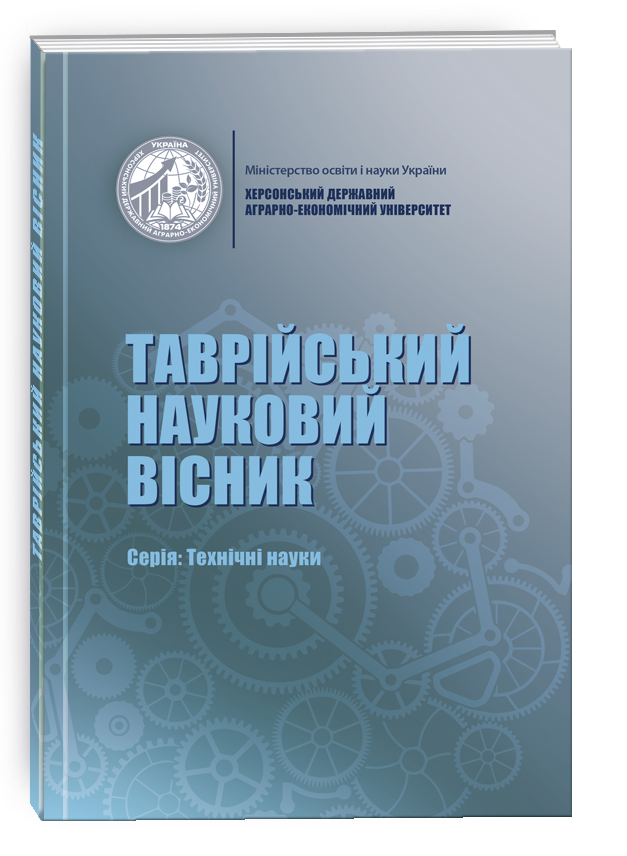INFORMATION SUPPORT FOR THE MULTI-INDEX TRANSPORTATION PROBLEM WITH FUZZY INTERVALS
Keywords:
multi-index transportation problem, fuzzy intervals, transportation optimization, information system, algorithmic support, linear programming, genetic algorithms, potential method, algorithm efficiency analysis, heuristic methodsAbstract
Modern transportation systems face increasing challenges related to the uncertainty of transport parameters, arising from fluctuating transportation costs, variable delivery times, resource limitations, and the complexity of route coordination. Multi-index transportation problems provide a structured framework for modeling such systems, incorporating multiple criteria, constraints, and interdependencies among parameters. One of the most effective approaches for addressing such challenges is the use of fuzzy intervals to represent uncertain cost and time parameters, enhancing the flexibility and accuracy of optimization solutions.This study presents an information support system for solving the multi-index transportation problem under uncertainty. The proposed system integrates a data input and normalization module, a fuzzy parameter processing mechanism, an optimization module, and a visualization system. It implements both classical optimization methods (modified potential method, simplex method) and modern metaheuristic approaches (genetic algorithms, simulated annealing).Additionally, hybrid algorithms combining adaptive heuristics, machine learning techniques, and fuzzy logic are applied to improve solution quality and robustness to parameter variations.A series of experiments was conducted using both synthetic and real-world datasets to evaluate the effectiveness of different solution approaches. The results indicate that classical methods provide fast solutions in cases with low uncertainty levels but significantly lose accuracy as parameter fuzziness increases. In contrast, metaheuristic and hybrid algorithms demonstrate high adaptability to changing conditions and significantly lower deviations from optimal solutions, albeit at the cost of increased computational complexity.The proposed approach integrates mathematical models with modern algorithmic techniques into a unified information system that automates transportation flow optimization, enhances resource management, and reduces costs. The visualization of computational results allows for the rapid assessment of alternative scenarios, facilitating decision-making in transportation logistics and fleet management.The findings of this study can be applied to the development of software solutions for automated resource allocation, adaptive route optimization, and predictive modeling of transportation network dynamics. Future research directions include extending the proposed model for dynamic transportation systems, integrating deep learning techniques, and utilizing distributed computing to improve efficiency in large-scale logistics networks.
References
Hitchcock F. L. The distribution of a product from several sources to numerous localities. Journal of mathematics and physics. 1941. Vol. 20. No. 1-4. P. 224–230. DOI: https://doi.org/10.1002/sapm1941201224
Ford L. R., Fulkerson D. R. Maximal flow through a network. Canadian journal of mathematics. 1956. Vol. 8. P. 399–404. DOI: https://doi.org/10.4153/cjm-1956-045-5
Chanas S., Kuchta D. Multi-index transportation problem with fuzzy costs and supplies. Fuzzy Sets and Systems. 1996. No. 82(3). P. 291–298.
Minieka E. Optimization algorithms for networks and graphs. New York : M. Dekker, 1978. 356 p.
Liu S.-T., Kao C. Solving fuzzy transportation problems based on extension principle. European Journal of Operational Research. 2004. Vol. 153. No. 3. P. 661–674. DOI: https://doi.org/10.1016/s0377-2217(02)00731-2
Nagy G., Salhi S. Location-routing: Issues, models and methods. European Journal of Operational Research. 2007. Vol. 177. No. 2. P. 649–672. DOI: https://doi. org/10.1016/j.ejor.2006.04.004
Bagloee S. A., Johansson K. H., Asadi M. A hybrid machine-learning and optimization method for contraflow design in post-disaster cases and traffic management scenarios. Expert Systems with Applications. 2019. Vol. 124. P. 67–81. DOI: https://doi. org/10.1016/j.eswa.2019.01.042
Teng J. A hybrid approach of deep learning to forecast financial performance: from unsupervised to supervised. Systems Science & Control Engineering. 2024. Vol. 12. No. 1. DOI: https://doi.org/10.1080/21642583.2024.2305411
Liu C. S., Zhu S. J. Hybrid Meta-Heuristic Approaches for Vehicle Routing Problem with Fuzzy Demands. Key Engineering Materials. 2010. Vol. 439-440. P. 241–246. DOI: https://doi.org/10.4028/www.scientific.net/kem.439-440.241
A review of urban transportation network design problems / R. Z. Farahani et al. European Journal of Operational Research. 2013. Vol. 229. No. 2. P. 281–302. DOI: https://doi.org/10.1016/j.ejor.2013.01.001
Акімов Д., Гавриленко В. Розв’язання транспортної задачі в умовах нео- днорідності продукції агропромислових підприємств. Computer-integrated technologies: education, science, production. 2024. № 56. С. 78–85. DOI: https://doi. org/10.36910/6775-2524-0560-2024-56-09
Artificial Intelligence in Logistics Optimization with Sustainable Criteria: A Review / W. Chen et al. Sustainability. 2024. Vol. 16. No. 21. P. 9145. DOI: https://doi. org/10.3390/su16219145
Enhancing patient information performance in internet of things-based smart healthcare system: Hybrid artificial intelligence and optimization approaches / A. Ala et al. Engineering Applications of Artificial Intelligence. 2024. Vol. 131. P. 107889. DOI: https://doi.org/10.1016/j.engappai.2024.107889
Derecia U., Karabekmeza M. E. The applications of multiple route optimization heuristics and meta-heuristic algorithms to solid waste transportation: A case study in Turkey. Decision Analytics Journal. 2022. P. 100113. DOI: https://doi.org/10.1016/j. dajour.2022.100113







